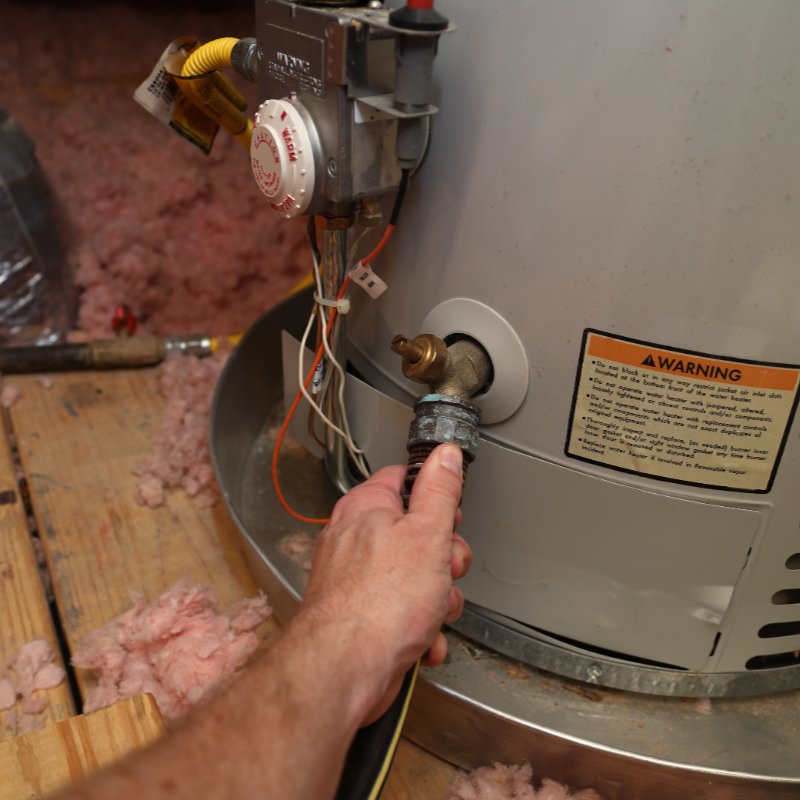Everyday Water Heater Issues
Everyday Water Heater Issues
Blog Article
We've come across this great article on Water Heaters Problems down the page on the internet and thought it made sense to talk about it with you over here.

Imagine starting your day without your routine hot shower. That already establishes a bad tone for the rest of your day.
Every residence requires a reliable water heater, but just a couple of know just how to handle one. One easy means to keep your hot water heater in top form is to check for mistakes frequently and fix them as quickly as they appear.
Keep in mind to turn off your water heater before smelling about for faults. These are the water heater mistakes you are more than likely to experience.
Water as well warm or too cool
Every water heater has a thermostat that identifies exactly how warm the water obtains. If the water entering into your house is too hot in spite of setting a hassle-free maximum temperature level, your thermostat might be faulty.
On the other hand, too cold water may be due to a failed thermostat, a busted circuit, or inappropriate gas flow. As an example, if you utilize a gas hot water heater with a damaged pilot burner, you would obtain cold water, even if the thermostat is in best problem. For electric heating systems, a blown fuse may be the offender.
Insufficient hot water
Hot water heater come in many sizes, depending on your hot water demands. If you lack warm water prior to everybody has actually had a bath, your hot water heater is too tiny for your family size. You should take into consideration installing a larger water heater container or opting for a tankless hot water heater, which occupies less area and also is extra resilient.
Strange noises
There are at least 5 sort of sounds you can learn through a water heater, but the most usual analysis is that it's time for the hot water heater to retire.
First of all, you should be familiar with the normal sounds a water heater makes. An electrical heating system might seem different from a gas-powered one.
Popping or banging sounds usually mean there is a piece of debris in your storage tanks, and it's time to cleanse it out. On the other hand, whistling or hissing noises might merely be your valves allowing some pressure off.
Water leakages
Leaks can come from pipelines, water connections, shutoffs, or in the worst-case scenario, the storage tank itself. In time, water will certainly corrode the storage tank, and also find its escape. If this takes place, you need to change your hot water heater as soon as possible.
Nevertheless, before your modification your entire container, make certain that all pipes are in location which each shutoff functions perfectly. If you still need assistance recognizing a leak, call your plumber.
Rust-colored water
Rust-colored water implies one of your hot water heater components is corroded. It could be the anode rod, or the container itself. Your plumber will certainly be able to recognize which it is.
Warm water
Despite just how high you set the thermostat, you won't obtain any type of hot water out of a heating unit well past its prime. A water heater's effectiveness may reduce with time.
You will additionally obtain lukewarm water if your pipes have a cross link. This indicates that when you turn on a faucet, warm water from the heater moves in together with regular, cold water. A cross link is simple to place. If your hot water taps still follow shutting the hot water heater valves, you have a cross link.
Discoloured Water
Corrosion is a major source of dirty or discoloured water. Deterioration within the water tank or a falling short anode rod might create this discolouration. The anode rod secures the container from rusting on the inside and also should be inspected annual. Without a pole or an appropriately operating anode pole, the hot water rapidly rusts inside the storage tank. Call a specialist hot water heater professional to determine if replacing the anode rod will fix the problem; otherwise, replace your water heater.
Conclusion
Ideally, your water heater can last 10 years before you need a modification. Nevertheless, after the 10-year mark, you may experience any of these faults much more on a regular basis. At this moment, you must add a new water heater to your spending plan.
How To Troubleshoot 3 Common Water Heater Problems in Twin Cities
The Water Heater Is Leaking
A leaky cold water inlet valve A loose pipe fitting A leaky temperature and pressure relief valve A corroded anode rod A cracked tank Turn Off Your Water Heater:
Shut off your gas water heater by turning the gas valve on the unit to the “OFF” position. Shut off your electric water by switching its power off at your electrical panel. Look for a two-pole breaker labeled “water heater” and turn it to the “OFF” position. Move the ball valve connected to the water heater to be perpendicular to the piping at a 90° angle. Look for the Leak:
Depending on whether the water is coming from the tank's top or bottom, you’ll want to look for the leak in different locations.
If the leak comes from the top of the tank, carefully look for water escaping from the cold water inlet valve or loose pipe fittings. Rusted hot and cold water valves can have loose connections with the tank, with water leaking out of them.
https://mspplumbingheatingair.com/blog/how-to-troubleshoot-3-common-water-heater-problems
I found that article on Common Problems with Tank Water Heaters while doing a search on the web. Those who liked our page kindly make sure you remember to share it. Thanks a lot for going through it.
Emergency? Dial immediately. Report this page